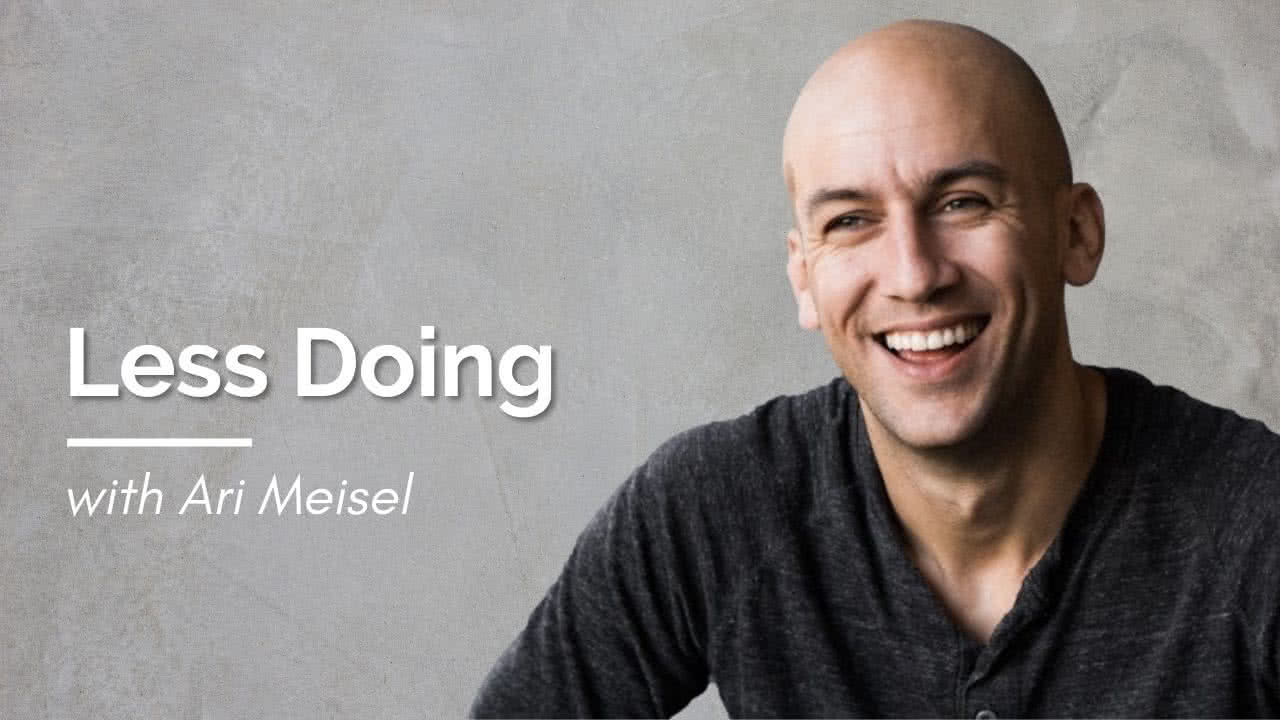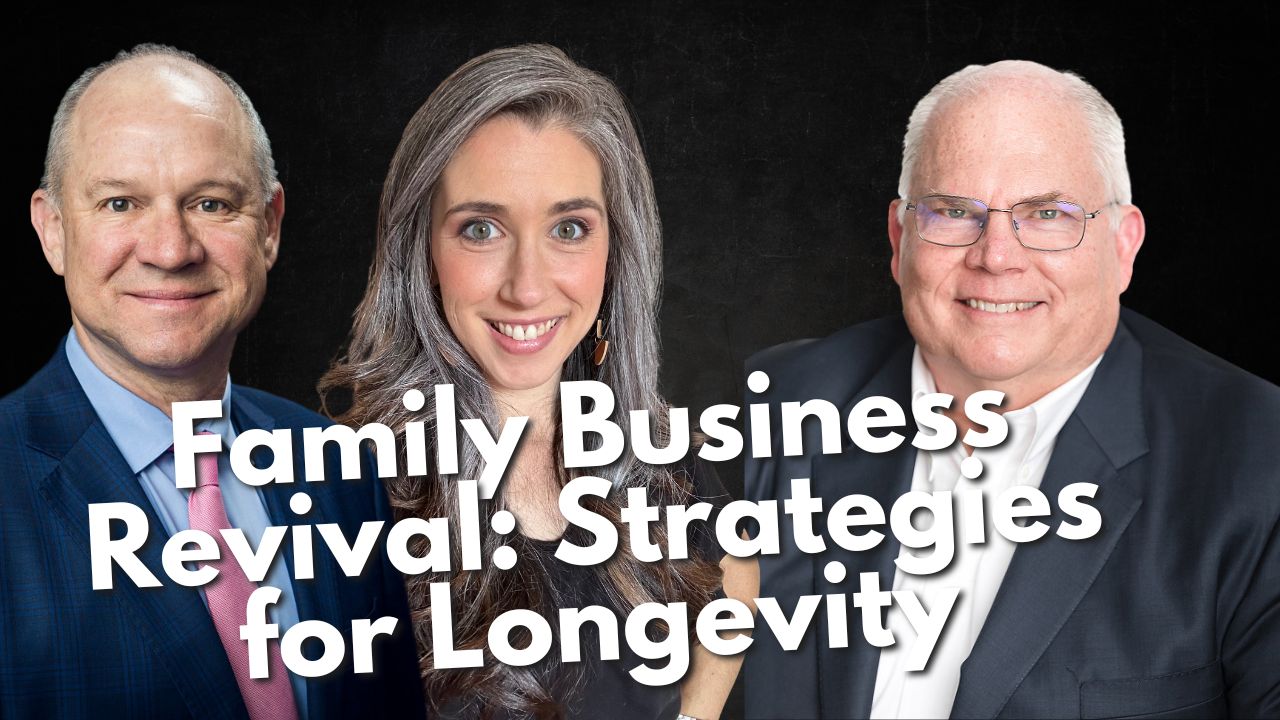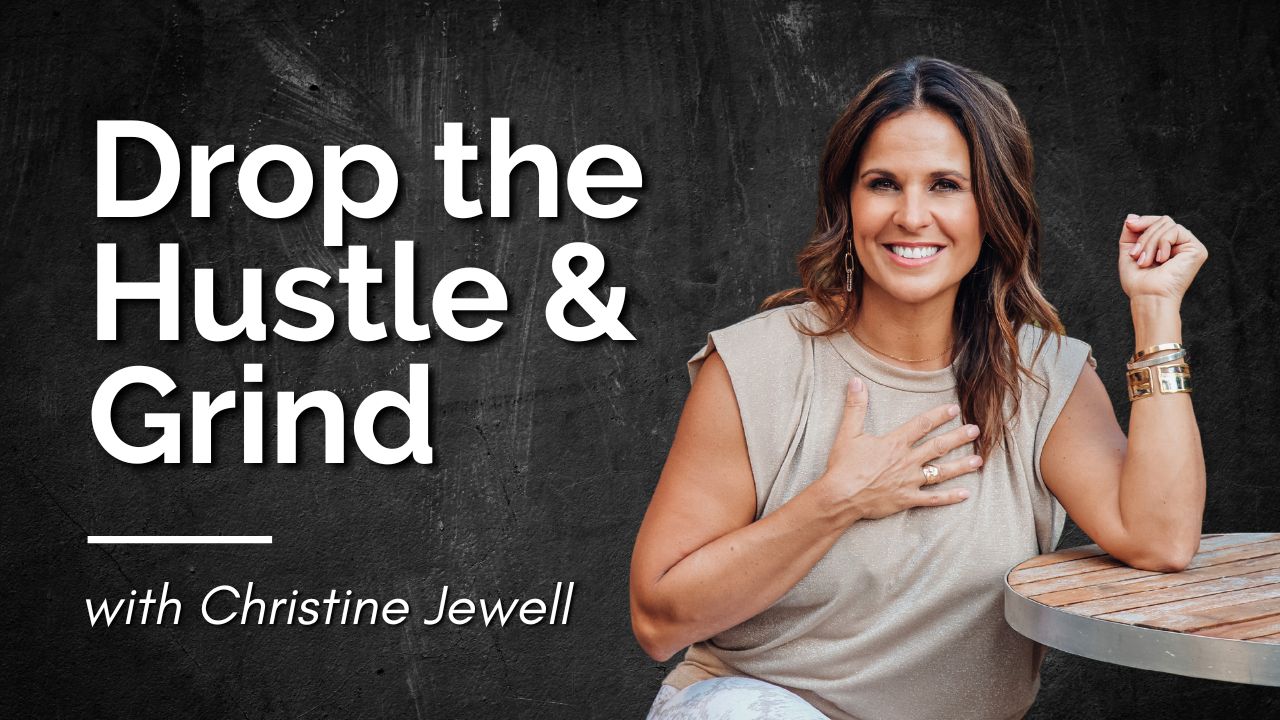
Crush Your 2022 Goals with Less Doing, with Ari Meisel
Want to get more done, quicker, easier, and more profitably? Then, it’s time to do less. Today, we’re talking with Ari Meisel, author of The Replaceable Founder, The Art of Less Doing, On Productivity, Idea to Execution about how to build a business that can run and grow without you.
So, if you want 2022 to be the year you opt-out of the hustle and make consistent progress… tune in now!
Podcast: Play in new window | Download (Duration: 55:38 — 63.7MB)
Subscribe: Apple Podcasts | Spotify | Android | Pandora | RSS | More
Table of contents
The Art of Less Doing
When Ari Meisel graduated college, he went into real estate development and construction in Upstate New York. His hours were grueling, and he was beginning to feel the effects of stress. At 23, Ari was diagnosed with Crohn’s disease, which is an inflammatory condition that is considered incurable. And in his journey to overcome this illness, he went from working 18-hour days to working one-hour days.
And while there were dozens of books on productivity at the time, there weren’t any on the market that addressed people who truly had little time in their day. The Art of Less Doing, Ari’s first book, was born out of the extreme restriction Ari had from his Crohn’s.
Essentially, the framework of “less doing” is to optimize, automate, and outsource. This made framework made it possible for Ari to continue to work and be productive. This idea has since grown into many other things, like The Replaceable Founder.
[5:48] “If you ask somebody… who works like a 9 to 5, what would happen if you had to leave the office by 4? You couldn’t work until 5. Most would just say they’d skip lunch, that’s usually the answer that comes back. But if you ask that same person, what if you only had an hour? It’s perplexing. It requires such a different way of thinking because those things still have to get done. But if you can’t possibly get them done in that hour, then who or what is going to do them for you? It’s that restriction that breeds innovation.”
Asynchronous Tools
Interestingly, Ari shares an interesting part of his strategy that has helped him put significant time back in his day. That is, the power of using more “asynchronous” tools and communication. It allows people to create more work-life balance and affords individuals control over their workday. However, many jobs are formed around synchronous communication. For example, in a typically 9 to 5 job, everyone is expected to come in at the same time, and communicate immediately, in real time. However, people are not synchronous, and have different rhythms.
Asynchronous communication, on the other hand, is like email. It allows each participant to take the information and control when they read and respond to it. This gives each person more autonomy, and the ability to construct their own work boundaries.
[8:30] “The technical requirements are not really what’s important. It’s really about a mindset, in terms of what you do.”
Ari shares that most people try to use texting synchronously. They type a message, send it, and can watch the three dots that signify the other person is typing. Of course, some messages are urgent, and require an immediate response. However, this can often prevent us from simply shooting off quick thoughts, which is what texting was designed to do.
Ari’s Favorite Way to Communicate
Voxer, which is a voice app, is Ari’s tool of choice. He allows his clients to have unlimited access to him through Voxer, but each person communicates at their own pace. It’s like communicating through voice memos or messages, rather than a phone call. This makes it possible for short, quick conversations that may take place over a day, but ultimately don’t distract or take much time.
The problem with providing coaching is that often the times people need contact with their coach don’t overlap with their actual appointments. This forces people to hold on to whatever is on their minds, which isn’t easy for everyone. It can also be hard to reschedule a conversation.
Voxer gives Ari’s coaching clients the ability to talk about their needs when they need to. In turn, Ari can think about their situation and respond more precisely.
How to Get Started
The path to “less doing”, as Ari Meisel puts it, is equal parts communication and optimization. Some of this involves self-tracking and awareness.
[13:40] “People who experience the feeling of overwhelm, a lot of times they’re so overwhelmed that they have no idea what’s causing the overwhelm… You can’t read the label from inside the jar.”
Identifying the source of the overwhelm starts with tracking—this means tracking your activities and responsibilities. Part of this tracking may include an exercise where you take stock of which of three categories your activities fall into. The categories include things that you’re amazing at and you love doing, things that you’re competent at, and things that you’re bad at but still doing.
Anything in the first category you can keep, and should even be the things you focus on. Things in the second category are things you should work to “re-home” with a team member, employee, or partner. The last category is a list of all the things you should outsource immediately.
MacGyver Style Innovation
Limiting circumstances can be the catalyst for efficiency, productivity, and innovation. You just have to handle your overwhelm, and cultivate that mindset. MacGyver is a classic example. No one handed MacGyver a gift card to Home Depot and told him to go buy what he needed to rig an explosion. He just used exactly what he had at his disposal and made it work, even if his resources made his situation look particularly grim.
[17:34] “The human brain actually does really poorly with like lots and lots of options… People like to talk about thinking outside of the box, but we still need to have a box of some sort in order to do that.”
When you have parameters or boundaries with which to play, you have to ability to innovate. If you have everything you need, you don’t really need to innovate. So looking for your own personal boundaries can be a good thing to explore. If you don’t have restrictions, you may need to create some in order to innovate.
The Ultimate KPI
Another way to track your business activities is something Ari Meisel has dubbed the Ultimate KPI. This is a step above the three-category exercise and is a framework he has developed himself. To do the exercise, you make a list of 20 things that you do on a regular basis. These can be as micro or macro as you want. For example, you could simply write podcasting, or you could break that into several components of podcasting.
Then, you identify 16 of those things (80%) as things you will no longer do in a year’s time. This stems from the principle that 20% of your actions generate 80% of your results. So it stands to reason that the other 80% of your actions can or should be outsourced. That way you can focus more on your most powerful 20%.
Then, the trick is figuring out how you’re going to either optimize, automate, or outsource each of the 16 activities off your plate. Then it’s up to you to track your progress throughout the year. The great thing about the Ultimate KPI is that anyone at any level can do this exercise.
Being a Better Decision-Maker
Across countries and continents, Ari has noted that when he asks people about productivity challenges, email always comes up. People find it overwhelming, distracting, and hard to organize.
[29:52] “My argument is that the email problem is not an email problem, it’s a decision-making problem.”
Unlike almost any other tool, email is something where you’re presented with hundreds or even thousands of decisions every day. Some of them can be addressed quickly, while other things may send you down a rabbit hole. But at the crux of it all is decision-making.
Ari recommends that for internal team communication, email should never be used. Email is not designed for good team communication and can be a detriment to your flow.
[31:22] The other issue with email, for a lot of people, is that it taxes our context-switching ability, which is what some people would think of as multitasking.”
Within the typical inbox, you can have some super important emails followed by moderately important emails, interspersed with social media notifications and coupons, and newsletters. This back-and-forth is difficult for people and can make decision-making a nightmare.
Transforming Your Inbox
The first step to taming your inbox is to separate the essential from the optional. One way you can do this is by creating a filter (Gmail) or a rule (Outlook) that moves any email containing an “unsubscribe” option into a folder labeled “optional.” This is fairly customizable too, so that you can make exceptions for a few things.
For the actual emails left in your inbox, Ari says you have three choices. You can delete it, deal with it, or defer it. The option to defer, however, must be intentional. This means creating a time or place to handle it so that it gets addressed. For example, using the snooze function in Gmail to batch your time, so that an email reappears when you’re ready and present to deal with it. In other words, if you defer something, you defer it proactively.
[35:40] “Own your time. Because if you don’t own your schedule, someone else is going to.
The 20-Minute Work Day
Ari Meisel works about 20 minutes a day, though he admits sometimes it can be much less than that. The secret, truly, is in how efficient and proficient he has become at outsourcing and automating his work. So for example, if he wants to work on his book or write a blog post, what he actually does is spend a few minutes passing a voice message to his writer. She can then take what he says and turn it into something longer. For him, this may only take a few minutes. And he has developed this type of relationship with his writer where the process works for both of them. In fact, he worked on his book exclusively through voice memos on Voxer with his writer.
This works for Ari because he is comfortable and skilled at conveying his thoughts verbally. Someone else may approach things in a slightly different way to a similar effect. Ari has also created an automated process for a 30 second Facebook live to be turned into a month’s worth of content without hiring another person.
46:58] “This is not about actually doing less overall, this is about doing less of the things that are not an effective use of your time.”
Connect with Ari Meisel
- Ari Meisel ari@lessdoing.com
- 1-2126733027
- www.lessdoing.com
Book A Strategy Call
Do you want to coordinate your finances so that everything works together to improve your life today, accelerate time and money freedom, and leave the greatest legacy? We can help! Book an Introductory Call with our team today https://themoneyadvantage.com/calendar/, and find out how Privatized Banking, alternative investments, or cash flow strategies can help you accomplish your goals better and faster. That being said, if you want to find out more about how Privatized Banking gives you the most safety, liquidity, and growth… plus boosts your investment returns, and guarantees a legacy, go to https://privatizedbankingsecrets.com/freeguide to learn more.
Family Business Longevity, with Rob Ferguson
Family businesses have a shrinking lifespan. Families in business together face conflicts and challenges that have made it increasingly difficult to build a business that lasts generations. Yet Rob Ferguson, founder of Ferguson Alliance, says that family businesses can live to infinity with the right systems and tools. Today, we’re discussing how the key components…
Read MoreStop the Hustle and Grind, with Christine Jewell
Are you an ultra-high achiever, but feeling the cost of that success? Christine Jewell, author, keynote speaker, faith-based executive coach, and host of the Breaking Chains podcast, joins us today to provide a fresh solution. In her new book, Drop the Armor, Christine teaches you a transformational approach that allows you to stop the hustle…
Read More


